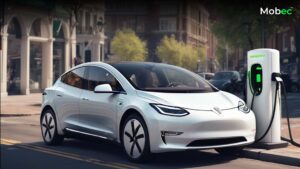As the world embraces the transition to electric vehicles (EVs) to mitigate the environmental impact of traditional fossil fuel-powered transportation, the proliferation of various types of charging stations has become integral to the successful integration and widespread adoption of electric mobility solutions. Charging stations, designed to replenish the energy reserves of EVs, come in different forms and serve distinct purposes, catering to the diverse needs of EV owners in different settings. From public charging stations strategically located along highways and urban centers to private charging stations installed in residential complexes and workplace charging solutions, the diverse range of charging station types contributes to the accessibility, convenience, and feasibility of electric vehicle ownership. In this comprehensive analysis, we delve into the different types of charging stations, exploring the features, benefits, and implications of public, private, workplace, and residential charging solutions in facilitating the widespread adoption of electric vehicles and promoting sustainable transportation practices.
Public Charging Stations: Enabling Long-Distance Travel and Urban Accessibility

Public charging stations serve as crucial components of the electric vehicle infrastructure, providing EV owners with accessible and reliable charging options in high-traffic areas, urban centers, and key transportation hubs. Public charging stations are strategically located along major highways, intercity travel corridors, and commercial districts, enabling EV owners to recharge their vehicles during long-distance travel and ensuring the accessibility of charging services for travelers and commuters. The proliferation of public charging stations facilitates the normalization of electric vehicle usage, alleviates concerns about range anxiety, and promotes the integration of electric vehicles into the broader transportation network, thereby fostering a culture of sustainable mobility and environmental responsibility.
Key features and benefits of public charging stations include:

- High Visibility and Accessibility: Public charging stations are characterized by their high visibility and accessibility, making them easily identifiable and accessible to EV owners and travelers in need of charging services. The strategic placement of public charging stations in visible and well-trafficked locations promotes awareness and encourages the utilization of charging services, thereby fostering the widespread adoption of electric vehicles and supporting the growth of the electric vehicle market.
- Fast and Convenient Charging: Public charging stations offer fast and convenient charging solutions that enable EV owners to replenish their vehicle batteries within a short timeframe, allowing them to resume their journeys quickly and efficiently. The availability of fast-charging options at public charging stations promotes the practicality and feasibility of electric vehicle ownership, encouraging consumers to consider electric vehicles as viable alternatives to traditional gasoline-powered vehicles for their daily commuting and long-distance travel needs.
- Interconnectivity and Roaming Capabilities: Public charging stations often support interconnectivity and roaming capabilities, enabling EV owners to access charging services seamlessly across different charging networks and locations without the need for multiple charging accounts or access cards. This interconnectivity promotes the flexibility and convenience of electric vehicle charging, empowering travelers to embark on extended journeys with the confidence that they can access charging services at various charging stations along their travel routes.
- Integrated Smart Charging Solutions: Many public charging stations are equipped with integrated smart charging solutions that optimize charging schedules, manage charging loads, and prioritize energy distribution based on demand and grid capacity. These smart charging solutions enhance the efficiency and reliability of public charging services, ensuring that EV owners can access charging stations conveniently and receive a seamless and user-friendly charging experience that aligns with their charging preferences and requirements.
The widespread deployment of public charging stations contributes to the development of a comprehensive charging infrastructure network that supports the evolving needs of electric vehicle owners and promotes the accessibility, convenience, and viability of electric vehicles as a sustainable and energy-efficient mode of transportation.
Private Charging Stations: Empowering Residential Charging Solutions and Personalized Convenience

Private charging stations, commonly installed in residential complexes, private parking facilities, and individual households, provide EV owners with personalized charging solutions that cater to their specific charging needs and preferences. Private charging stations empower residential charging solutions that enable EV owners to conveniently charge their vehicles at home, fostering a culture of convenience, accessibility, and self-sufficiency within the residential community. The integration of private charging stations into residential complexes and individual residences supports the transition to electric vehicle ownership and encourages consumers to embrace sustainable transportation practices that prioritize environmental conservation and energy efficiency.
Key features and benefits of private charging stations include:
- Home Charging Convenience: Private charging stations offer the convenience of home charging, allowing EV owners to recharge their vehicles overnight or during off-peak hours when electricity rates are lower, thereby minimizing charging costs and optimizing energy consumption. The accessibility of home charging solutions promotes the practicality and affordability of electric vehicle ownership, empowering residents to incorporate electric vehicles into their daily routines and promote sustainable transportation practices within their communities.
- Personalized Charging Management: Private charging stations enable personalized charging management that empowers EV owners to monitor and control their charging sessions, customize charging schedules, and optimize charging settings based on their specific charging requirements and preferences. The flexibility of personalized charging management fosters a sense of ownership and autonomy among EV owners, enabling them to actively participate in the charging process and align their charging practices with their lifestyle and energy conservation goals.
- Enhanced Energy Efficiency: Many private charging stations are designed to prioritize energy efficiency and promote responsible energy consumption practices, leveraging advanced energy management systems and energy-saving features that optimize charging efficiency and minimize energy waste. The integration of energy-efficient charging solutions into residential complexes and individual households supports the adoption of sustainable energy practices and reinforces the commitment to environmental stewardship and energy conservation within the residential community.
- Cost-Effective Charging Solutions: Private charging stations offer cost-effective charging solutions that enable EV owners to manage their charging expenses efficiently, take advantage of competitive electricity rates, and leverage energy incentive programs that promote the adoption of electric vehicles and support sustainable transportation initiatives. The affordability of private charging solutions encourages residents to embrace electric vehicles as a practical and accessible mode of transportation, fostering a culture of financial sustainability and responsible energy consumption within the residential community.
By embracing private charging stations as integral components of residential charging solutions, stakeholders within the residential community can contribute to the development of a more sustainable, energy-efficient, and environmentally friendly living environment that promotes the adoption of electric vehicles and supports the transition to a cleaner, greener, and more accessible transportation future.
Workplace Charging Solutions: Encouraging Sustainable Commuting and Corporate Sustainability Initiatives
Workplace charging solutions play a vital role in encouraging sustainable commuting practices and supporting corporate sustainability initiatives that prioritize environmental responsibility and promote the adoption of eco-friendly transportation solutions within the workplace. Workplace charging stations are strategically installed in corporate campuses, office complexes, and business districts, providing employees and visitors with accessible and convenient charging options that facilitate the integration of electric vehicles into the daily commuting routines of working professionals. The deployment of workplace charging solutions fosters a culture of sustainable mobility and corporate environmental stewardship, encouraging businesses and organizations to embrace electric vehicle adoption and promote the benefits of clean energy transportation within their professional communities.
Key features and benefits of workplace charging solutions include:
- Commuting Convenience and Accessibility: Workplace charging stations offer commuting convenience and accessibility, enabling employees and visitors to charge their electric vehicles conveniently during work hours and promoting the adoption of sustainable commuting practices that prioritize energy efficiency and reduce carbon emissions. The accessibility of workplace charging solutions encourages employees to consider electric vehicles as a viable and practical transportation option for their daily commuting needs, fostering a culture of environmental consciousness and sustainable mobility within the corporate environment.
- Employee Engagement and Well-Being: Workplace charging solutions contribute to employee engagement and well-being by promoting a healthy and sustainable work-life balance that supports the adoption of eco-friendly transportation practices and encourages employees to embrace sustainable commuting alternatives. The integration of workplace charging stations into corporate campuses and office complexes fosters a sense of community engagement and environmental responsibility among employees, promoting a culture of well-being and environmental stewardship that prioritizes the health and sustainability of the workplace environment.
- Corporate Sustainability Initiatives: Many workplace charging solutions are implemented as part of corporate sustainability initiatives that emphasize the importance of environmental conservation, energy efficiency, and responsible transportation practices within the workplace. By promoting the adoption of electric vehicles and supporting the growth of the electric vehicle market, corporate sustainability initiatives demonstrate a commitment to reducing carbon emissions, mitigating air pollution, and contributing to the global efforts to combat climate change, thereby positioning businesses and organizations as advocates for sustainable mobility and environmental stewardship within their respective industries.
- Integration with Green Building Standards: Workplace charging solutions are often integrated with green building standards and sustainable construction guidelines that prioritize the implementation of energy-efficient technologies, renewable energy sources, and eco-friendly infrastructure solutions within the workplace environment. The integration of workplace charging stations into green building initiatives reinforces the commitment to sustainable development and environmental responsibility, promoting the adoption of clean energy transportation solutions and supporting the creation of eco-conscious workplaces that prioritize the well-being of employees and the preservation of natural resources.
The implementation of workplace charging solutions fosters a collaborative and environmentally conscious work environment that encourages employees and organizations to embrace sustainable transportation practices, prioritize energy efficiency, and contribute to the advancement of a cleaner, greener, and more sustainable transportation ecosystem.
Residential Charging Stations: Promoting Inclusive Community Development and Sustainable Urban Living
Residential charging stations are essential components of inclusive community development and sustainable urban living, providing residents with accessible and convenient charging options that support the adoption of electric vehicles within residential neighborhoods and promote the benefits of clean energy transportation solutions. Residential charging stations are installed in multi-unit housing complexes, apartment buildings, and residential communities, catering to the diverse charging needs of residents and fostering a culture of environmental sustainability and energy-conscious urban living. The integration of residential charging stations into community development projects and urban planning initiatives contributes to the establishment of electric vehicle-friendly neighborhoods and promotes the adoption of sustainable transportation practices within residential communities.
Key features and benefits of residential charging stations include:
- Community Accessibility and Inclusivity: Residential charging stations promote community accessibility and inclusivity, providing residents with equitable access to charging services and fostering a sense of community engagement and environmental stewardship within residential neighborhoods. The integration of charging stations into community development projects encourages residents to embrace electric vehicles as a practical and accessible mode of transportation, promoting the benefits of clean energy transportation and supporting the transition to a more sustainable and energy-efficient urban living environment.
- Sustainable Community Development: Residential charging stations contribute to sustainable community development initiatives that prioritize the implementation of energy-efficient technologies, renewable energy sources, and eco-friendly infrastructure solutions within residential complexes and urban neighborhoods. By promoting the adoption of electric vehicles and supporting the growth of the electric vehicle market, residential charging stations demonstrate a commitment to environmental sustainability and promote the benefits of clean energy transportation for residents, businesses, and visitors within the residential community.
- Smart Community Integration: Many residential charging stations are integrated with smart community solutions that optimize energy consumption, promote energy efficiency, and support the implementation of sustainable transportation practices within the residential environment. The integration of smart community solutions into residential charging infrastructure fosters the development of interconnected and energy-conscious residential communities that prioritize environmental conservation, promote responsible energy consumption, and encourage residents to actively participate in the advancement of sustainable urban living practices.
- Collaboration with Property Management: Residential charging stations often involve collaboration with property management companies and residential community associations that oversee the development, implementation, and management of charging infrastructure within residential complexes and urban neighborhoods. The collaboration with property management entities promotes community engagement, fosters a culture of environmental responsibility, and encourages stakeholders within the residential community to actively participate in the promotion of sustainable transportation practices and the adoption of electric vehicles as a viable and eco-friendly mode of urban living.
By embracing residential charging stations as integral components of inclusive community development and sustainable urban living initiatives, stakeholders within the residential community can contribute to the establishment of a more inclusive, accessible, and environmentally friendly living environment that prioritizes the well-being of residents and supports the transition to a cleaner, greener, and more energy-efficient urban living ecosystem.
Conclusion
The different types of charging stations, including public, private, workplace, and residential charging solutions, play essential roles in enabling the widespread adoption of electric vehicles and promoting the benefits of sustainable transportation practices within various settings. Public charging stations contribute to the accessibility and visibility of electric vehicle charging infrastructure, supporting long-distance travel and urban accessibility for EV owners and travelers. Private charging stations empower residential charging solutions that prioritize home charging convenience and personalized charging management for residents, fostering a culture of accessibility and energy efficiency within residential communities. Workplace charging solutions encourage sustainable commuting practices and corporate sustainability initiatives within the workplace, promoting the adoption of electric vehicles and supporting the growth of the electric vehicle market within the corporate environment. Residential charging stations promote inclusive community development and sustainable urban living, fostering the integration of electric vehicles into residential neighborhoods and supporting the advancement of eco-friendly transportation practices within the residential community.
The proliferation of different types of charging stations underscores the transformative impact of electric vehicles on the overall sustainability of the transportation sector, positioning charging infrastructure as a key enabler of the ongoing transition towards a more accessible, inclusive, and environmentally friendly transportation future. By prioritizing the development and deployment of diverse charging solutions that cater to the unique needs of different settings and communities, stakeholders within the electric vehicle industry can contribute to the realization of a cleaner, greener, and more energy-efficient transportation ecosystem that supports the well-being of both present and future generations and promotes the sustainable development of our global communities.






















[…] […]